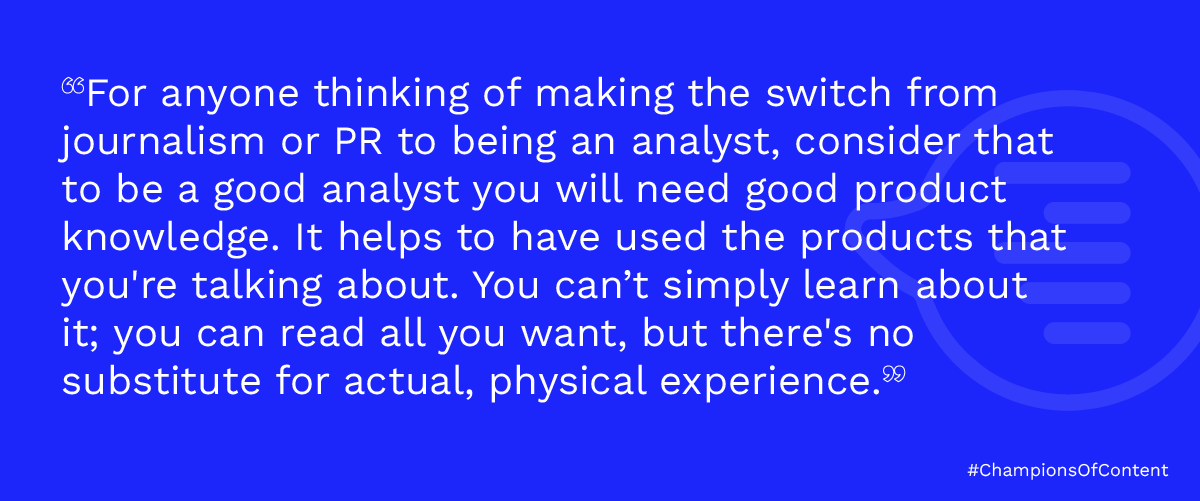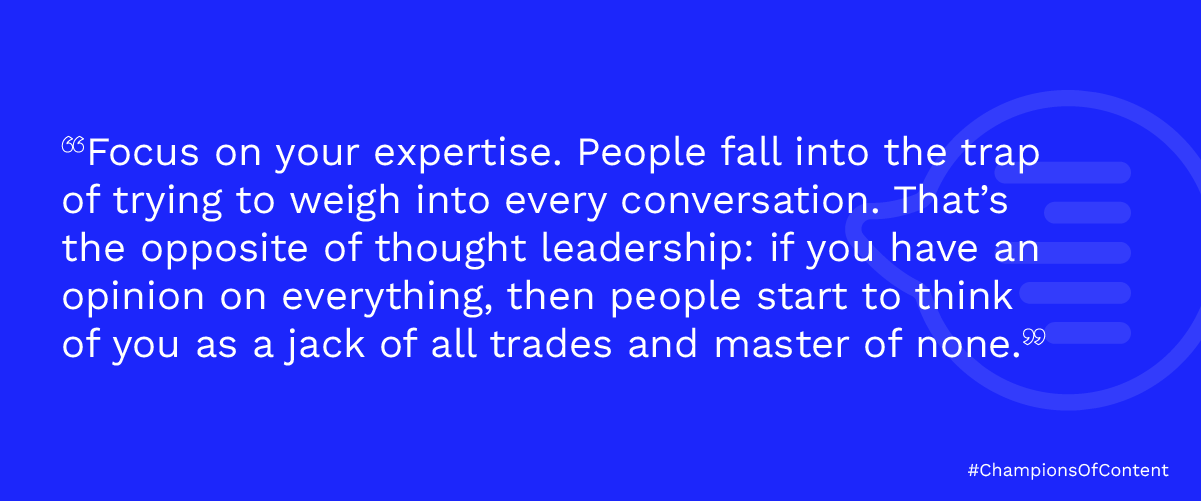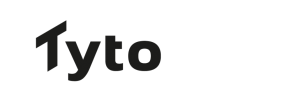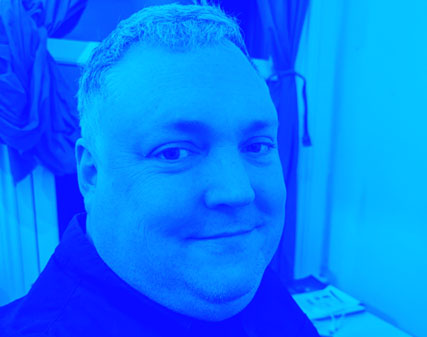Champions of Content – Q&A with Dan Raywood: Freelance journalist, editor and speaker
Welcome to the latest in our new series: Champions of Content.
Content is integral to the way brands are understood and seen by their audiences, but developing content for different audiences, on different channels and even in different languages can be very complicated to get right.
In Champions of Content, we’ll be speaking to passionate content creators we admire including marketers, journalists, writers, podcasters, and speakers about their experiences and sharing the wisdom to help others on their own content journey – whether your first putting pen to paper or looking to level up your content strategy.
Dan Raywood is an experienced journalist, writer, editor, content creator, speaker, and analyst. He has spent more than 20 years in B2B journalism covering a wide range of beats and specialising in cybersecurity.
As a journalist, his reporting on IT and information security has appeared in SC Magazine and IT Security Guru, and he served as deputy editor of Infosecurity Magazine for over four years. Most recently, he was a product marketing manager for Tenable, working with the company’s various research teams and hosting its research podcast.
In this edited conversation, we chart Dan’s path through journalism, what he learned from working in-house at companies such as Tenable and 451 Research, and the importance of authenticity.
Dan, you’ve worked as a journalist and had in-house roles. Can you tell us about your own career journey as it relates to content and what role content plays in your work today?
The thing that got me really interested in journalism was the 1980 film Superman II. As a child, I watched that film over and over. At the start of the film, Clark Kent goes into the office of the Daily Planet, and the editor says to him, “Clark, I want you to go to Paris.” Why? Because terrorists have got a hydrogen bomb!
Imagine having a job where you walk in and the first thing you do is get sent to Paris. How interesting would that be? It didn’t seem like a job where you’re going to be doing the same thing for the rest of your life. So while I’ve never been sent to France at short notice, I have been to lots of places.
After school, I did a journalism qualification and got my first job in 2001, working for a B2B publisher. Fast forward to 2008 and I got my first job on SC Magazine, which is when I got into cybersecurity reporting. Since then, I’ve worked at several cybersecurity publications, as well as a vendor.
In terms of career journey and content, working in-house as an analyst required a different approach to content than as a journalist. It required a different way of thinking, focusing on how does this offering affect our customers, or how does this change the industry? My manager there could analyse a company in about five minutes and figure out how well they were doing.
For anyone thinking of making the switch from journalism or PR to being an analyst, consider that to be a good analyst you will need good product knowledge. It helps to have used the products that you’re talking about. You can’t simply learn about it; you can read all you want, but there’s no substitute for actual, physical experience.

We all want our content to stand out. What is your advice to vendors on how they can make their content stand out above another?
Increasingly, a lot of vendors are seeing that the way forward is to have an independent voice that isn’t just heavily pushing the message that their product is the solution to everything.
Lots of companies are now taking this approach. The software company Tripwire have been excellent at this for many years. Companies like Kaspersky do threat reports and get into the media with stories about state-sponsored hacking groups. They’re not just talking about their product.
People don’t want to hear the hard sell; they want to understand what problem is facing their industry and what the solution is.
It’s better to talk about how you’re making a difference to the industry and be seen as an industry expert. Focus less on trying to push the products and more about brand awareness. The more value you seem to be providing, the more seriously people will take you.

What are some of the challenges you face when producing content for different channels and audiences, and how do you deal with these? Here at Tyto, we often navigate the complexity of developing content for different audiences in different countries.
Working in product marketing required a new way of thinking about content. I needed to learn how to write communications aimed at a different audience of prospective customers rather than readers. On the media side, a reader is more likely to take you at your word, while on the vendor side, you really need to explain to your audience the reasons why they should consider a given problem or solution. Ultimately, it came down to being very factual, because you’ll get found out quickly if you’re not correct!
It also required a different mindset, moving from a journalistic focus on how I ask questions when I interview someone, to thinking about how to write in a more persuasive style.
Another challenge concerned converting more scientific or technical content into something that an audience will understand or that a sales person can sell. I’ve often worked with scientific research teams. My approach was to ask them to explain to me what it is they’ve found, what they’re doing, what the vulnerability is, etc. And then I try and turn that into something that readers can understand.
For vendors, that kind of content can be very useful, to show why their product is ahead of the competition, or how their customers are receiving the best service.
For brands or individuals planning to level up their content in 2023, what would be your top three bits of advice for how they can increase the impact of their content? What should they be thinking about and looking at? What are you thinking about?
Number one is authenticity. It is so important now, because the world is much more open and if you lie or are disingenuous then people will find you out.
Second, focus on your expertise. People fall into the trap of trying to weigh into every conversation. That’s the opposite of thought leadership: if you have an opinion on everything, then people start to think of you as a jack of all trades and master of none. Whereas if you specialise on a topic, then it’s easier for journalists to think of you when they need a comment for a story.
Finally, stay relevant to what you’re trying to do. Sometimes companies can move too far from what they’re trying to achieve. As an example, when the invasion of Ukraine began, many companies did a media blackout; that was an appropriate response compared to the companies who kept on talking about things that had no relevance to them whatsoever. In those circumstances, it can come across as distasteful and inappropriate




